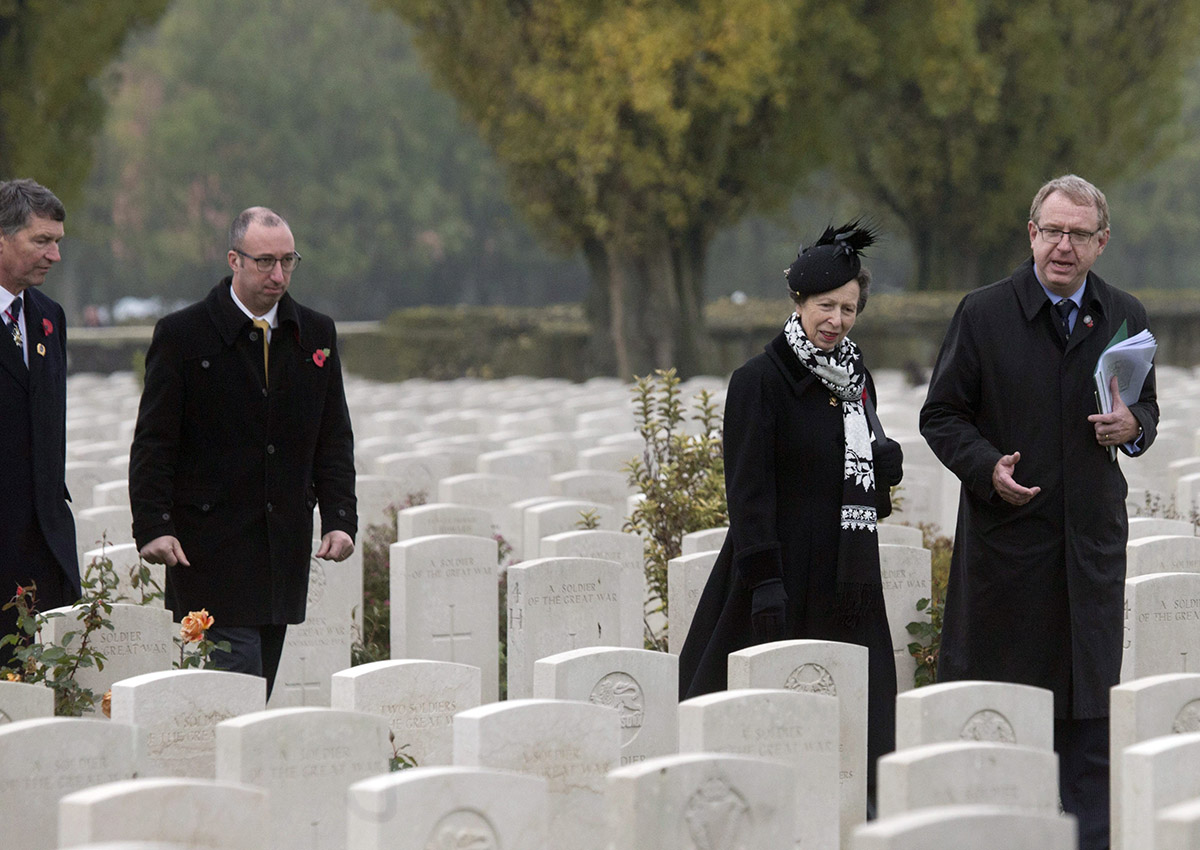I was thrilled to open my National Post last week and read about “Flowerdew’s Charge” — a Canadian cavalry attack during the First World War, at the Battle of Moreuil Wood. The attack was on March 30, 1918; the Post article was observing the 100th anniversary. The charge didn’t go well for the attacking Canadians. Three-quarters of the unit, C Squadron of Lord Stratchona’s Horse, was killed or injured. It was a slaughter, but the battle was won — the rattled Germans lost their momentum and their attack, a serious threat to the allied war effort, came to a halt.

I know a lot about this battle. Indeed, I’ve written about it here before. It’s not just military history to me, it’s family history. Private Morley Walter Gurney, my great-grandfather, commanded a troop of men in C Squadron. He was at Moreuil Wood, he was in Flowerdew’s Charge. He was hit during the battle, and suffered permanent injuries.
The battle is largely forgotten today by anyone without a real passion for military history or a direct family link. That’s a shame, but it’s not a surprise. Canadians are generally largely illiterate about their history, and that’s sadly especially true of their military history. Vimy Ridge, D-Day, peacekeeping, Afghanistan — that’s about it as far as general knowledge goes, and I’m not sure most people could even list all four of those things. You might have to settle for two or three.
- Budget 2024 failed to spark ‘political reboot’ for Liberals, polling suggests
- Train goes up in flames while rolling through London, Ont. Here’s what we know
- Peel police chief met Sri Lankan officer a court says ‘participated’ in torture
- Wrong remains sent to ‘exhausted’ Canadian family after death on Cuba vacation
But Canadians should care. And another story I read recently is another reminder why. Our apathy has consequences.
Canada has War Graves all over the world. Most are in Europe, a few are in Asia. Many are shared with other allied nations, typically members of the Commonwealth — during the World Wars, Canadian troops often fought under British command, and died alongside British soldiers and those from other parts of the Empire. They were buried together and remain so for eternity.
Visiting one of these vast cemeteries is a profoundly moving experience. I don’t hesitate to say “life changing.” Knowing the facts of a battle, and reading up on the personal stories of a few of the soldiers who died in it, is one thing. But being there, amid the rows of white markers, knowing that each of them contains a family tragedy, that each marks a sacrifice made on our behalf for all time, hits you harder than you expect. So does seeing the reverence that the locals in these far-away lands have for these resting places for our dead.
Canada is an outlier, though, in one way. While the cemeteries for our dead are cared for ashore, over a thousand officers and men of the Royal Canadian Navy lost their lives at sea during the great conflicts of the 20th century. Most countries declare the wrecks of their warships beneath the waves as graveyards, and extend the same legal protections as you’d see in a cemetery on land to them. Canada, bizarrely, does not.

WATCH ABOVE: Recognizing 1812 Historic Shipwrecks
This might sound like an entirely symbolic issue. Even if it were, it would still be a worthy one — symbolism matters, especially when we speak of the dead. But there is a practical concern here. Deep-sea diving technology is rapidly improving. A warship that went down generations ago with her crew aboard is now often accessible to divers.
Some are merely explorers, and respectful exploration of a historical site is fine. Some are plunderers, seeking antiques for sale. Indeed, last year, it was discovered that dozens of Second World War-era sunken warships, the final resting places for thousands of allied and enemy personnel alike, had been raided not just for trinkets, but for scrap metal.
Not all of the world’s wrecks are protected. Some fall through cracks in overlapping treaties or national jurisdictions. But Canada has barely paid any attention to the issue at all. A few Canadian wrecks are covered abroad, by the local rules of the nearest nations. But our own Canadian warships, sunk in or near our own waters, have no status. Plundering them, and disturbing the mortal remains of the crew, would not violate any law and could not be lawfully stopped.
The House of Commons recently heard testimony about the need for an ocean war graves designation under Canadian law, and agreed to study the issue. It’s a first step but just that — real action is needed. A declaration by Canada that our war wrecks are legal cemeteries, entitled to the same legal protections that govern the final resting places of our soldiers and air crew, would cost virtually nothing but would mean much. Those sailors died for this country and for the things we claim to believe in. What does it say about how we remember and value their sacrifice if we can’t even extend them that much?
Matt Gurney is host of The Exchange with Matt Gurney on Global News Radio 640 Toronto and a columnist for Global News.








Comments